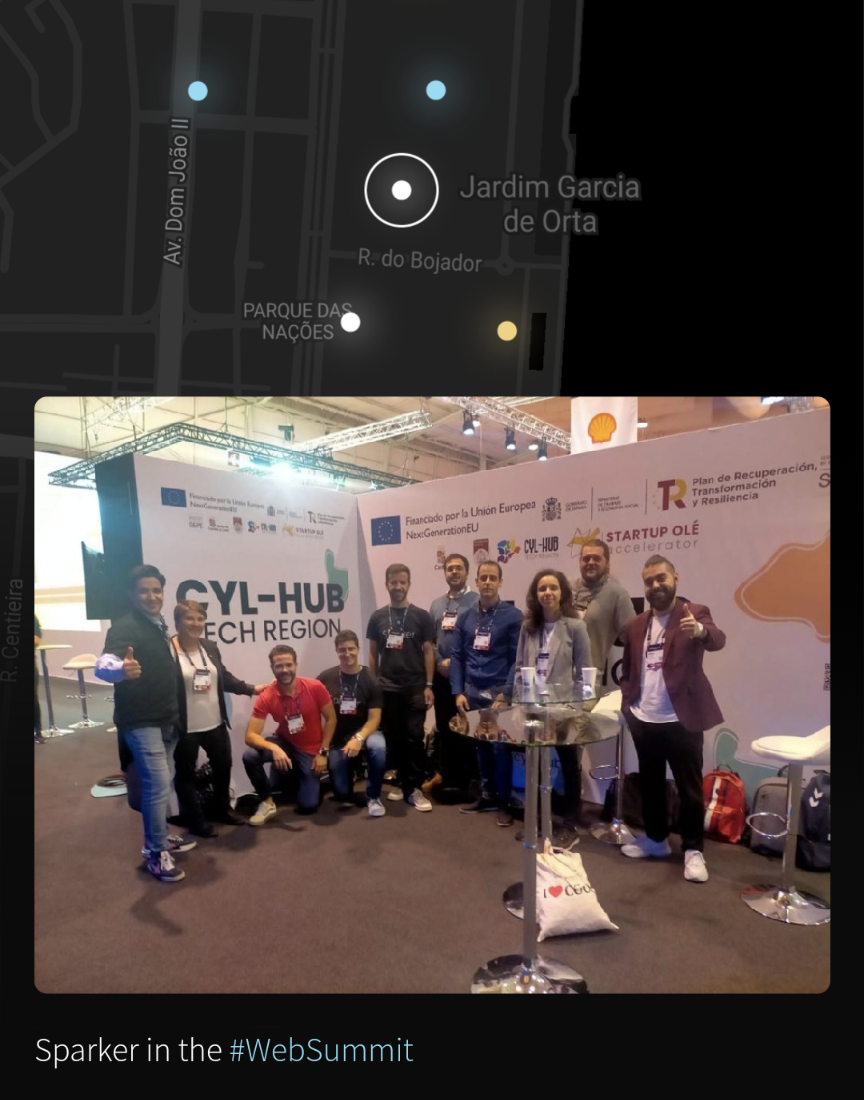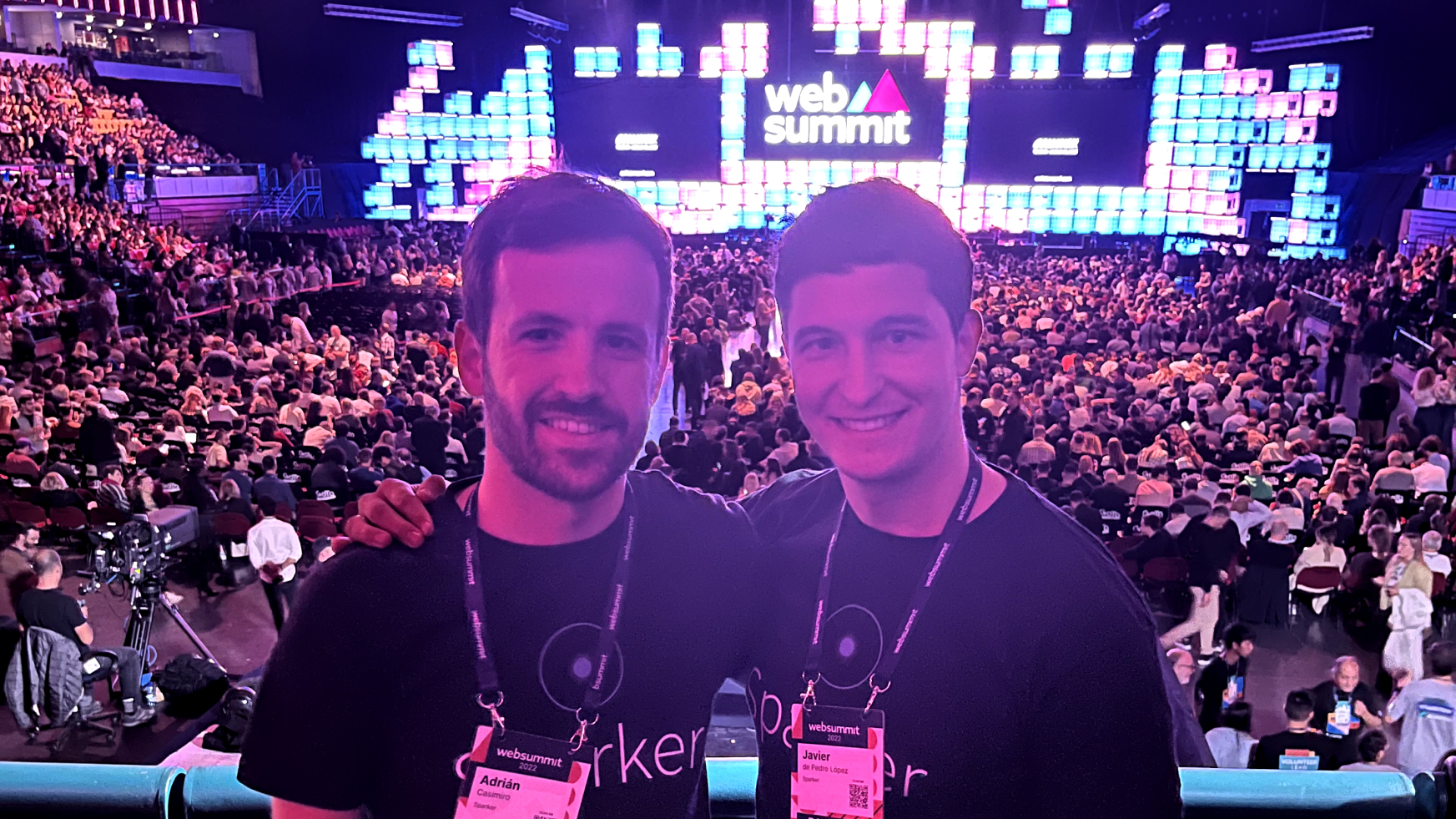Sparker in the Web Summit 2022

Lisbon is postulated as the center of unicorns in Europe and Spain is looking at its model. The Spanish startup Sparker, one of the few social proposals. A camera falling over the public could have overshadowed the inauguration.
The recently concluded Lisbon Web Summit has managed, as planned, to break its own attendance record, with 7,130 people attending this edition, including 1,200 speakers and 1,500 journalists.
The main stage of the Altice Arena, considered one of the largest indoor venues in Europe with its 20,000 seats, was sometimes too small to host entrepreneurs, investors, managers of large companies, gurus and journalists from the increasingly booming technology sector in what is considered the largest global technology event in the world, the Web Summit, created in 2009 by Irishman Paddy Cosgrave and held in the Portuguese capital since 2016 with the contribution of the Portuguese government of around 5 million euros per year.

For Portugal and more specifically for Lisbon, the Web Summit has become an important vector of attraction of technological capital, helping the Portuguese capital to be considered as one of the reference cities in innovation and technology throughout Europe, as remarked at the inauguration by the mayor of the host city, Carlos Moedas, who took advantage of this magnificent setting to announce the launch of the “Unicorn Factory” project, which aims to encourage large technology companies to set up in Lisbon, help startups to grow and turn the city into an important hub for these growing companies worldwide, making Lisbon, in the mayor’s own words, “the European capital of ‘unicorns’”, as unlisted private equity companies are known, whose valuation has exceeded US$1 billion. 1 billion. This bet is also raising some controversy in Lisbon due to the increase in rents that could be causing the attraction of these companies and the so-called digital nomads with high salaries.
Spain looks to Portugal
Spain is no stranger to the growth potential that surrounds the world of startups, nor to the steps that the neighboring country is taking to stand out in the technology sector and wanted to strengthen its presence at the Web Summit with more than 80 companies and organizations that have come individually or under the umbrella of institutions such as ICEX belonging to the Government of Spain or the CYL-Hub, international project of innovation and technological entrepreneurship in the territory of Castilla y León financed by Next Generation EU funds and the Junta de Castilla y León with 1,342,280 €.
This Spanish representation is more than double the participation in the last edition of the Web Summit, demonstrating that the Spanish is “one of the entrepreneurial ecosystems that is growing and receiving more investment” as Elisa Carbonell, general director of Internationalization of Business within ICEX, has indicated.
Emilio Corchado, director of CYL-Hub, emphasized that the institution he represents “wants to support the internationalization of microenterprises, freelancers and startups in Castilla y León, connecting them with investors and international corporations”.

It is worth noting the coincidence in time of the presentation at the Web Summit of the measures of the new Portuguese Startup Law, by Antonio Dias Martins, CEO of Startup Portugal, with the approval in the Spanish Congress of Deputies of the “Draft Law for the Promotion of the Startup Ecosystem”, also known as the “Startup Law”, which in the case of both countries explicitly defines what a startup is, incorporates tax incentives, economic and administrative aid for the creation of this type of company and better treatment for the purchase of stock options.
However, Dias Martins himself has expressed Portugal’s desire to have a more ambitious “Startup Law” than the one contemplated in Spain, referring to the limitation of 5 years from the creation of the company to be considered a startup, as the Spanish bill includes, and making clear the interest of all European countries in creating the most interesting regulatory scenario to attract human capital and the fierce competition between countries in order not to miss this economic “train”.
The protagonists of the Web Summit
On a personal level, all the attention at the Web Summit opening went to Olena Zelenska, First Lady of Ukraine, who called for the help of the technology sector to stop the Russian invasion of her country and “believe in technologies that save and not destroy. Believe that such technologies are the future. Because otherwise, there would simply be no future in the whole world.”

Jordan’s Queen Rania Al-Abdullah also sparked much interest in her plea to “reclaim humanity in the face of algorithms in every refugee crisis,” concluding that “the real progress we need is not better machines, but for all of us to be better humans.”
This request from the Queen of Jordan is striking, in a Web Summit in which projects oriented towards cryptoassets, artificial intelligence and the metaverse have been highlighted, and which a priori seem to bet on the loss of human interaction and increasingly artificial relationships.
Without going any further, the prominence that in past editions of the Web Summit had the projects aimed at social proposals, this time have been limited to a small group of startups, among which the Spanish Sparker (https://sparker.io/en) stands out. A free app that, through geolocated messages on the map, allows you to discover what is happening around you and connect with it, to know the latest news in different areas from local testimonies, “democratizing” access to information in places where there is no freedom of press to, according to Adrian Casimiro CEO of Sparker, “recover that humanity to which the Queen of Jordan refers, turning Sparker into more than a communication tool or a social network, in a “digital window” to connect with the world”.

Incident at the inauguration of Web Summit
The inauguration and the entire development of the Web Summit has stood out for its careful organization, as it can not be otherwise in an event of such magnitude, however, what has been a real “party” of technology and entrepreneurship, could be overshadowed by an incident during the inauguration in which part of a motorized spider camera came off from the roof of the Altice Arena on the attendees, without having to regret any injuries and resolving this trance with a small delay and a great scare for the attendees.
